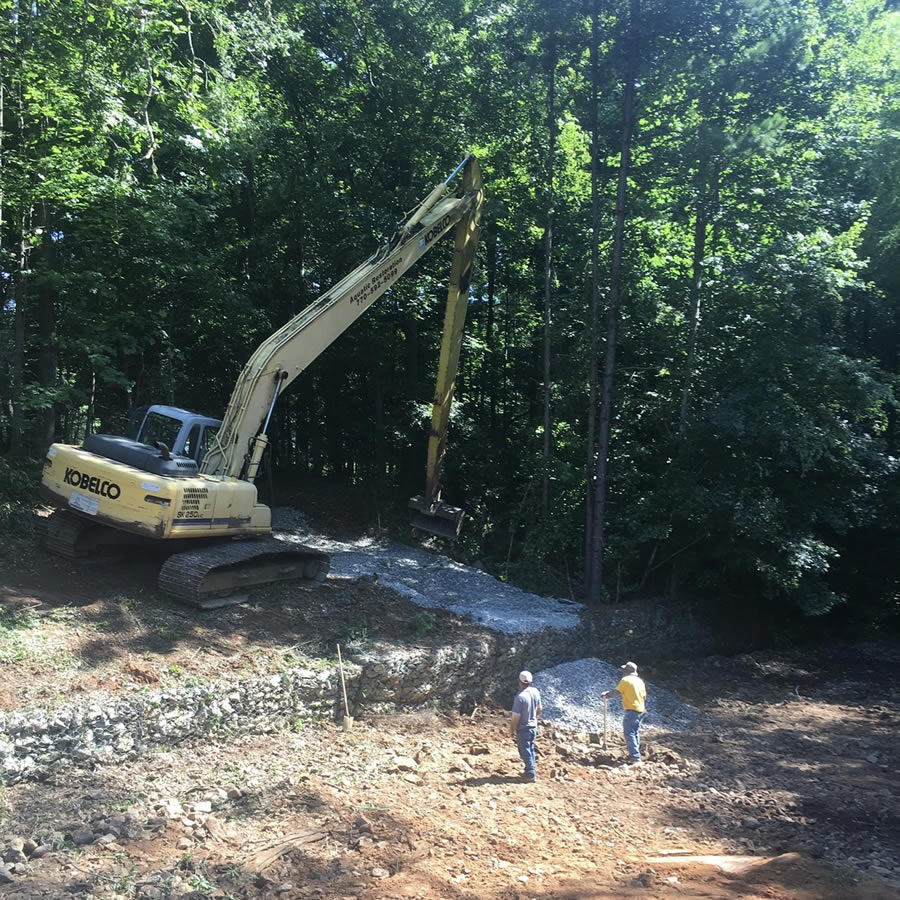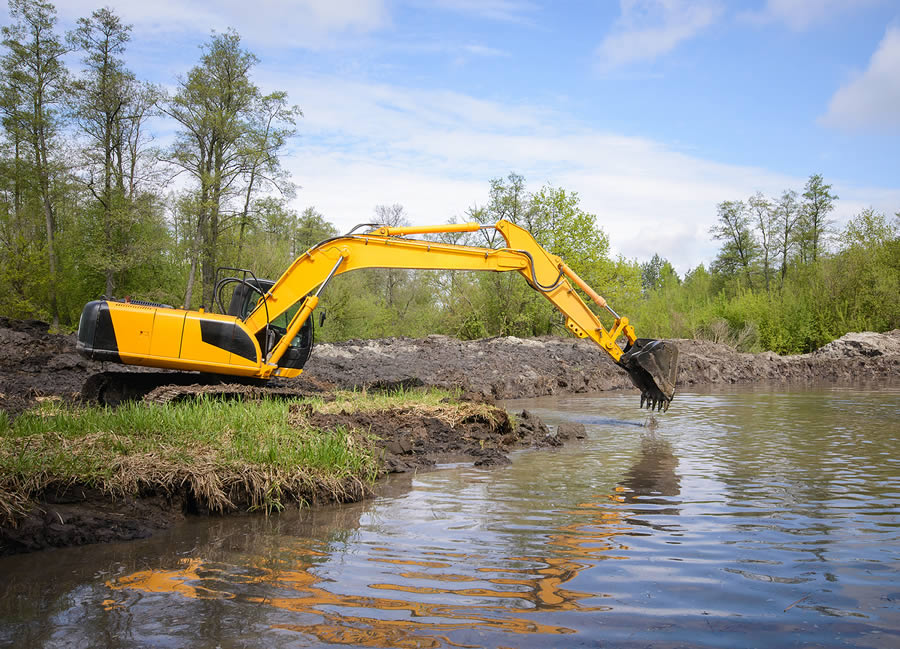
Lakes are captivating natural features that contribute to the beauty and ecological diversity of many properties. However, over time, these water bodies can face challenges such as sediment accumulation, reduced water depth, and poor water quality. This is where lake dredging come into play. Aquatic Restoration’s lake dredging in Atlanta is a restorative process that revitalizes these aquatic environments, ensuring long-term health and functionality. Continue reading or call Aquatic Restoration to learn more about our sediment removal dredging in Atlanta.
Over time, eroded soil, organic matter, decaying vegetation, and even human-generated pollutants are transported into the lake through runoff from surrounding lands, streams, and rivers. Wind, currents, and wave action also contribute to sediment movement in the water body. Once in there, these particles gradually settle to the bottom due to their weight and the calming effect of still water.
Though this is a natural process, the buildup can have detrimental effects. The sediment can reduce water clarity, leading to decreased light penetration and hindered photosynthesis, which affects aquatic plant growth. Further, it can clog water intake systems, impairing water circulation and potentially disrupting the lake's oxygen levels.
Sediment carries nutrients but also includes pollutants and heavy metals. These can contaminate the water and threaten both aquatic life and human life. Even the excess nutrients can disrupt the natural balance of the ecosystem. For instance, nutrients like phosphorus and nitrogen can lead to algal blooms and excessive plant growth.
Lake dredging involves the removal of accumulated sediment, debris, and organic matter from the bottom of a lake. By removing sediment, dredging helps improve water clarity and reduces the risk of waterborne pollutants.
Dredging restores the original depth, enabling a healthier ecosystem and recreational activities. This supports a wider range of aquatic organisms, from fish to invertebrates, and encourages biodiversity.
Dredging also helps maintain proper water storage capacity, reducing the risk of flooding during heavy rain events. This is particularly important in areas prone to flooding.
All in all, dredging helps turn your lake into a safe and aesthetic place. Clear and inviting waters enhance the visual appeal of lakes, making them more enjoyable for residents, visitors, and wildlife enthusiasts.

So, you’ve decided to hire a lake dredging company. What can you expect? Our lake dredging in Atlanta is simple and we guide you through the process.
First, our experts will conduct a thorough survey of the lake to assess sediment depth, distribution, and potential ecological impact. Then we carefully extract the sediment from the lake with the assistance of mechanical equipment. Once dredging is complete, measures are taken to prevent erosion and ensure the newly exposed areas are stabilized.
Removed sediment is either dewatered, treated, and disposed of responsibly or repurposed for construction projects. We will also handle the necessary paperwork with your cooperation. If you are looking for a reliable lake dredging company in Atlanta, then call Aquatic Restoration to speak with a member of our team today.
Lake dredging is an integral part of restoring waterways and improving their overall health. This…
Read MoreThere’s no such thing as a maintenance-free retention pond, as much as we’d like…
Read MoreLake and pond dredging is an essential maintenance task that helps to improve water…
Read MoreThere’s a lot that goes into managing a lake. Beyond the aesthetics, it’s important…
Read More